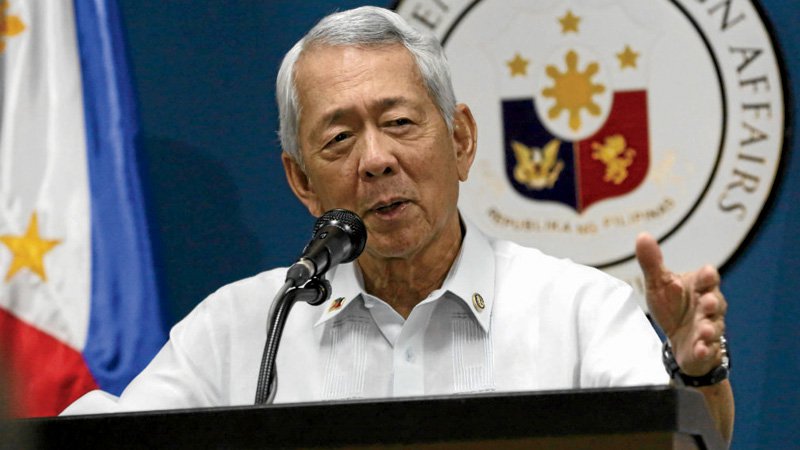LIMA, PERU—The Philippines may be better off splitting from the International Criminal Court (ICC) if the tribunal interferes with the government’s bloody war on drugs, the country’s top diplomat said here on Thursday.
Foreign Affairs Secretary Perfecto Yasay was reacting to President Rodrigo Duterte’s statement that he may follow Russian leader Vladimir Putin, who has said his country would pull out of the world’s first permanent war crimes tribunal because it was allegedly one-sided and inefficient.
Mr. Duterte’s threat was in the context of the court “trying to interfere in our internal affairs” by suggesting the President could be liable for genocide if it were proven he sanctioned the mass killing of crime suspects, he said.
Speaking on the sidelines of the Asia-Pacific Economic Cooperation (Apec) ministerial meetings here, Yasay said Mr. Duterte understood fully well that the ICC’s role was only “supplementary” to a country’s criminal justice system.
“It cannot supervene or be higher than our national criminal justice system. It should be simply be supportive and supplemental,” Yasay said. “But the way I as a lawyer see it, the way our President as a lawyer sees it, it seems to indicate that the ICC would like to go beyond what is authorized under its charter.”
He said withdrawing from the ICC made sense should the body interfered with the Philippines despite assurances it was neither violating human rights nor involved in extrajudicial killings.
Yasay cited a statement issued in October by ICC prosecutor Fatou Bensouda, who said her office was watching for signs of officials “ordering, requesting, encouraging or contributing” to crimes against humanity in the Philippines.
She said she was concerned about Filipino officials’ public statements appearing to condone and encourage the killings. There have been over 4,000 deaths related to the drug war, nearly half of whom were vigilante-style executions since Mr. Duterte assumed office in July.
The Philippines is a signatory to the ICC, which holds jurisdiction over cases of genocide, war crimes and crimes against humanity.
Yasay said the president has said that extrajudicial killings were not carried out by the police but by “criminal elements themselves (who are) trying to interdict the other and prevent them from ratting against each other.”
Yasay, however, said Bensouda might have voiced out her own opinion, stressing that under Philippine laws, a sitting president could not be criminally prosecuted.
“An agency outside our criminal justice system can do that? That will be treating us with great disrespect,” Yasay said.
Meanwhile, a spokesperson for the United Nations, Farham Haq, said they were aware of the Philippine position, even as there has been no formal communication about it.
“It’s clear from what the leaders have said that there are many, many governments who believe that there’s a problem. What we’re saying is what you do with that is you work to improve the system,” Haq said.—WITH A REPORT FROM AP
